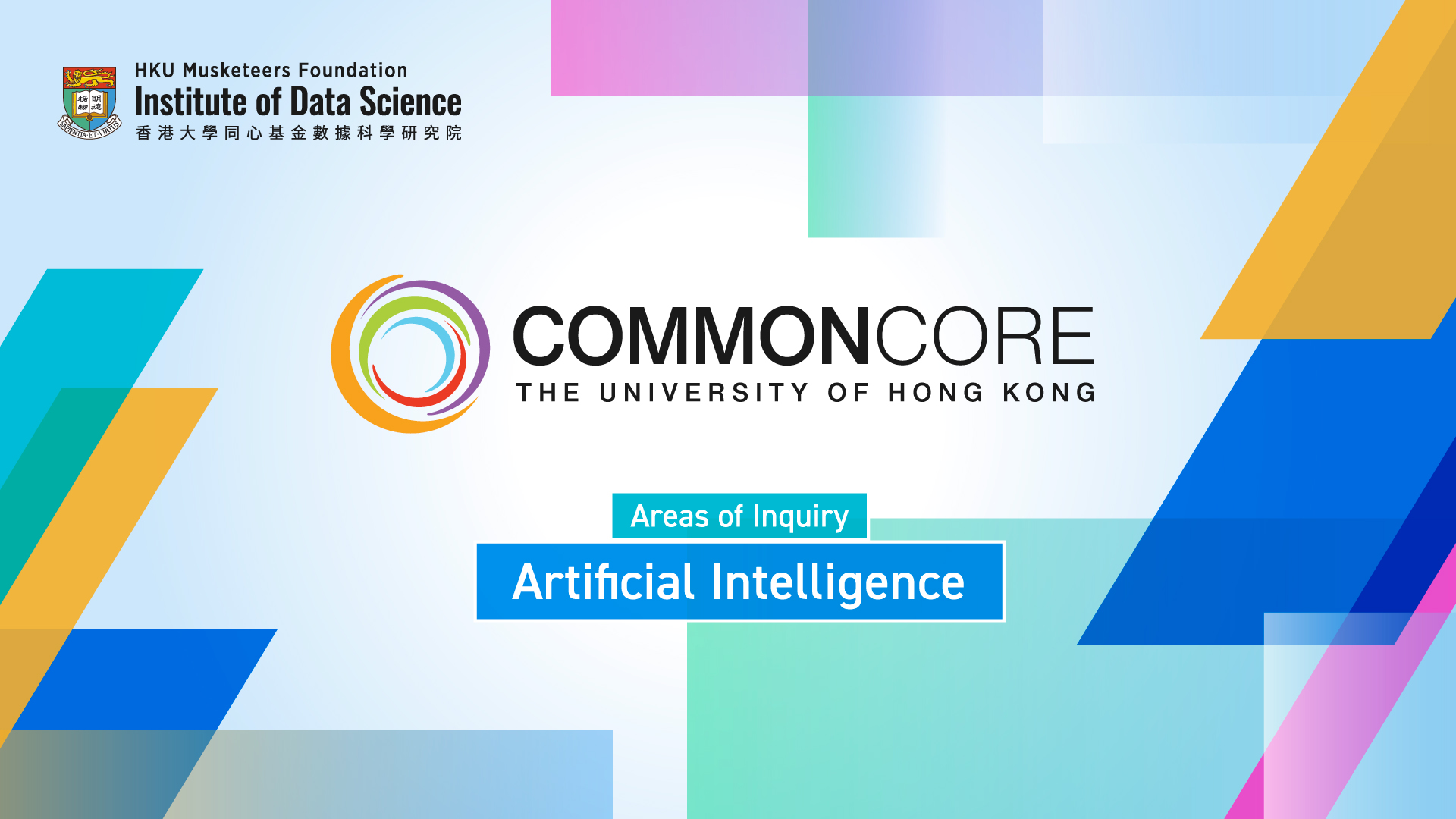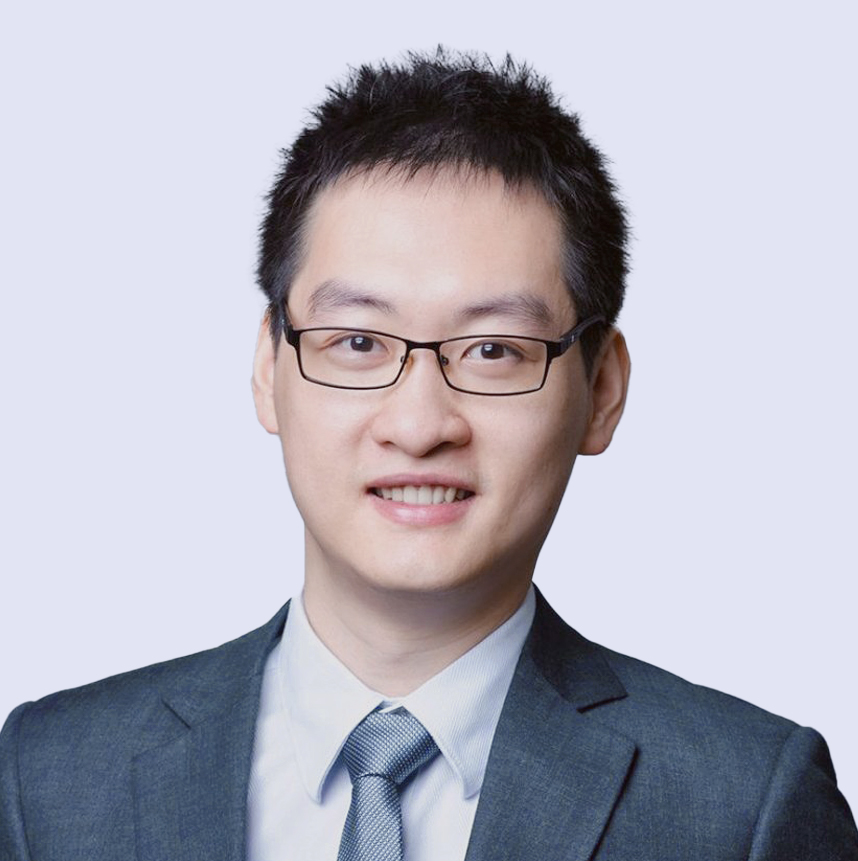

CCAI9025 Artificial Intelligence
AI-driven Robotics for Humankind
Course Teachers

Professor Hongyang LI
Assistant Professor
HKU Musketeers Foundation Institute of Data Science
Professor Hongyang Li is an Assistant Professor in HKU Musketeers Foundation Institute of Data Science and Research Scientist at OpenDriveLab, Shanghai AI Lab. His research focus is on autonomous driving and embodied AI. He led the end-to-end autonomous driving project, UniAD and won the IEEE CVPR 2023 Best Paper Award. UniAD has a large impact both in academia and industry, including the recent rollout to customers by Tesla in FSD V12. He proposed the bird’s-eye-view perception work, BEVFormer, that won Top 100 AI Papers in 2022 and was explicitly recognized by Jensen Huang, CEO of NVIDIA and Prof. Shashua, CEO of Mobileye at public keynotes. He served as Area Chair for CVPR 2023, 2024, NeurIPS 2023 (Notable AC), 2024, ACM MM 2024, ICLR 2025, referee for Nature Communications. He will serve as Workshop Chair for CVPR 2026. He is the Working Group Chair for IEEE Standards under Vehicular Technology Society and Senior Member of IEEE.

Professor Yi MA
Director, HKU Musketeers Foundation Institute of Data Science
Director, HKU School of Computing and Data Science
Professor, Chair of Artificial Intelligence
Professor Yi Ma is a Chair Professor in the Musketeers Foundation Institute of Data Science (HKU IDS) and Department of Computer Science at the University of Hong Kong. He took up the Directorship of HKU IDS on January 12, 2023. He is also a Professor at the Department of Electrical Engineering and Computer Sciences at the University of California, Berkeley.
Professor Ma received his Bachelor’s degrees in Automation and Applied Mathematics from Tsinghua University in 1995, two Masters degrees in EECS and Mathematics in 1997, and a PhD degree in EECS from UC Berkeley in 2000. He has been on the faculty of UIUC ECE from 2000 to 2011, the principal researcher and manager of the Visual Computing group of Microsoft Research Asia from 2009 to 2014, and the Executive Dean of the School of Information Science and Technology of ShanghaiTech University from 2014 to 2017. He then joined the faculty of UC Berkeley EECS in 2018. He has published about 60 journal papers, 120 conference papers, and three textbooks in computer vision, generalized principal component analysis, and high-dimensional data analysis. He received the NSF Career award in 2004 and the ONR Young Investigator award in 2005. He also received the David Marr prize in computer vision from ICCV 1999 and best paper awards from ECCV 2004 and ACCV 2009. He has served as the Program Chair for ICCV 2013 and the General Chair for ICCV 2015. He is a Fellow of IEEE, ACM, and SIAM.

Professor Ping LUO
Associate Professor (by courtesy) HKU Musketeers Foundation Institute of Data Science
Associate Professor Department of Computer Science The University of Hong Kong
Professor Ping Luo’s researches aim at 1) developing Differentiable/ Meta/ Reinforcement Learning algorithms that endow machines and devices to solve complex tasks with larger autonomy, 2) understanding foundations of deep learning algorithms, and 3) enabling applications in Computer Vision and Artificial Intelligence. Professor Ping Luo received his PhD degree in 2014 in Information Engineering, the Chinese University of Hong Kong (CUHK), supervised by Prof. Xiaoou Tang (founder of SenseTime Group Ltd.) and Prof. Xiaogang Wang. He was a Research Director in SenseTime Research. He has published 70+ peer-reviewed articles (including 20 first author papers) in top-tier conferences and journals such as TPAMI, IJCV, ICML, ICLR, NeurIPS and CVPR. He has won a number of competitions and awards such as the first runner up in 2014 ImageNet ILSVRC Challenge, the first place in 2017 DAVIS Challenge on Video Object Segmentation, Gold medal in 2017 Youtube‐8M Video Classification Challenge, the first place in 2018 Drivable Area Segmentation Challenge for Autonomous Driving, 2011 HK PhD Fellow Award, and 2013 Microsoft Research Fellow Award (ten PhDs in Asia).
Course Description
Generative AI (GenAI) is revolutionizing the future of creativity across nearly every domain—from writing and illustration to music composition and filmmaking. Easily transforming natural language into vivid and high-quality content, GenAI demonstrates remarkable efficiency and accessibility, offering advanced creative capability to everyone. Moreover, GenAI is growing at an unprecedented pace, with new techniques and tools emerging almost daily. This transformative moment presents both extraordinary opportunities and complex challenges for individuals and industries alike. This course immerses students in the rapidly evolving world of GenAI through a dynamic blend of intuitive technical demonstrations, hands-on creative projects, thought-provoking discussions on its societal and artistic impact, and guest lectures from pioneering GenAI artists. This course thus provides a unique opportunity to explore the intersection of technology and creativity. Equipped with fresh insights and practical experience, students will gain a comprehensive understanding of how GenAI is reshaping the creative landscape, inspiring them to embrace this transformative journey.

